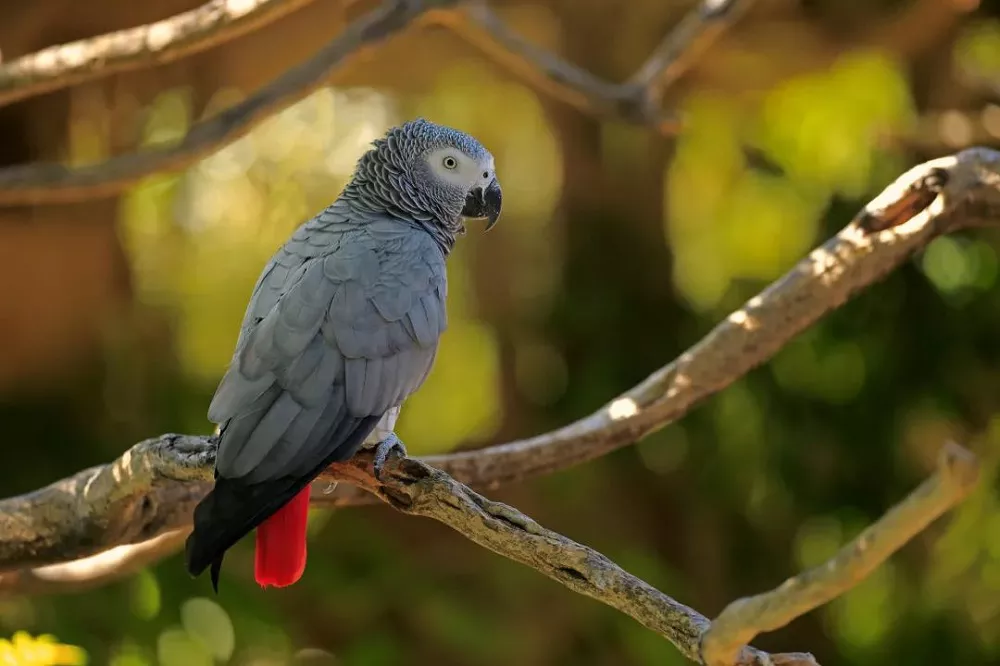The Grey parrot (Psittacus erithacus), also known as African grey parrot, is a remarkable avian species renowned for its intelligence, captivating personality, and exceptional mimicry abilities. Native to the rainforests of West and Central Africa, these birds have been a popular choice for pet owners and enthusiasts around the world. One crucial aspect that often captures the curiosity of potential owners is the lifespan of these beautiful creatures. In this article, we will delve into the topic and explore how long grey parrots can live, shedding light on various factors that influence their longevity.
Average Lifespan of Grey Parrots
Grey parrots are known for their impressive lifespan compared to many other parrot species. On average, these birds have a lifespan of 40 to 60 years in the wild. However, with proper care, nutrition, and a nurturing environment, grey parrots have been known to live well beyond the age of 60, reaching even 80 years or more in captivity. The record for the oldest grey parrot is currently held by a bird named Cookie, who lived to be an astounding 82 years old.
Factors Affecting the Lifespan of Grey Parrots
Several factors contribute to the lifespan of grey parrots:
Genetics: Just like humans, genetic predisposition plays a significant role in determining the lifespan of grey parrots. Some individuals may possess genes that contribute to a longer life expectancy, while others may have genetic factors that make them more susceptible to certain health issues that can shorten their lifespan.
Diet and Nutrition: Proper nutrition is essential for the overall health and longevity of grey parrots. A balanced diet consisting of high-quality pellets, fresh fruits, vegetables, seeds, and nuts is crucial. Avoiding foods high in fat, sugar, and salt is important to prevent obesity and associated health problems. Regular access to clean, freshwater is vital for hydration.
Environment and Exercise: Providing a spacious and stimulating environment is crucial for the physical and mental well-being of grey parrots. They need ample space to fly, climb, and exercise their muscles. Regular flight and exercise help maintain cardiovascular health and prevent obesity-related issues. Mental stimulation through toys, puzzles, and social interaction is equally important to prevent boredom and behavioral problems.
Veterinary Care: Regular check-ups by an avian veterinarian are crucial for monitoring the health of grey parrots. Routine examinations can help identify potential health issues early on, allowing for prompt intervention and treatment. Vaccinations, parasite control, and proper hygiene play a significant role in preventing diseases that can significantly impact the lifespan of these birds.
Stress and Emotional Well-being: Grey parrots are highly intelligent and social creatures that thrive on social interaction and mental stimulation. Loneliness, boredom, and stress can have adverse effects on their well-being, leading to a shorter lifespan. Providing companionship, engaging in regular training sessions, and offering a variety of toys and activities can promote a healthy emotional state and increase longevity.
Avoidance of Toxins and Hazards: Grey parrots are sensitive to a wide range of toxins, including fumes from non-stick cookware, household cleaners, cigarette smoke, and certain plants. These substances can cause respiratory problems, organ damage, or even be fatal. Ensuring a safe and toxin-free environment is essential for promoting the longevity of grey parrots.
Common Health Issues
While grey parrots are generally hardy and resilient, they are susceptible to several health issues that can impact their lifespan if not addressed promptly. Some common health problems in grey parrots include:
Psittacine Beak and Feather Disease (PBFD): This viral disease affects the feathers and beaks of parrots, leading to feather loss, beak deformities, and immune system suppression. PBFD can be fatal if left untreated.
Proventricular Dilatation Disease (PDD): Also known as “macaw wasting disease,” PDD affects the digestive system of parrots, causing weight loss, regurgitation, and neurological symptoms. PDD is often fatal, and there is no known cure.
Respiratory Infections: Grey parrots are prone to respiratory infections caused by bacteria, viruses, or fungi. Symptoms may include coughing, sneezing, nasal discharge, and difficulty breathing. Timely veterinary intervention and appropriate treatment are crucial.
Aspergillosis: This fungal infection affects the respiratory system of parrots and can be life-threatening. It is commonly associated with poor ventilation and high humidity levels. Regular cleaning of cages and proper air circulation can help prevent this condition.
Obesity: Lack of exercise and a poor diet can lead to obesity in grey parrots. Obesity increases the risk of various health issues such as cardiovascular problems, liver disease, and joint disorders.
Conclusion
Grey parrots are remarkable avian companions known for their intelligence, longevity, and captivating personalities. With proper care, nutrition, social interaction, and a stimulating environment, these birds can live well into their golden years, providing their human companions with decades of joy and companionship. Understanding the factors that influence their lifespan and taking proactive steps to promote their well-being are crucial in ensuring the thriving and longevity of these incredible avian companions.


 Facebook
Facebook  Instagram
Instagram  Youtube
Youtube 